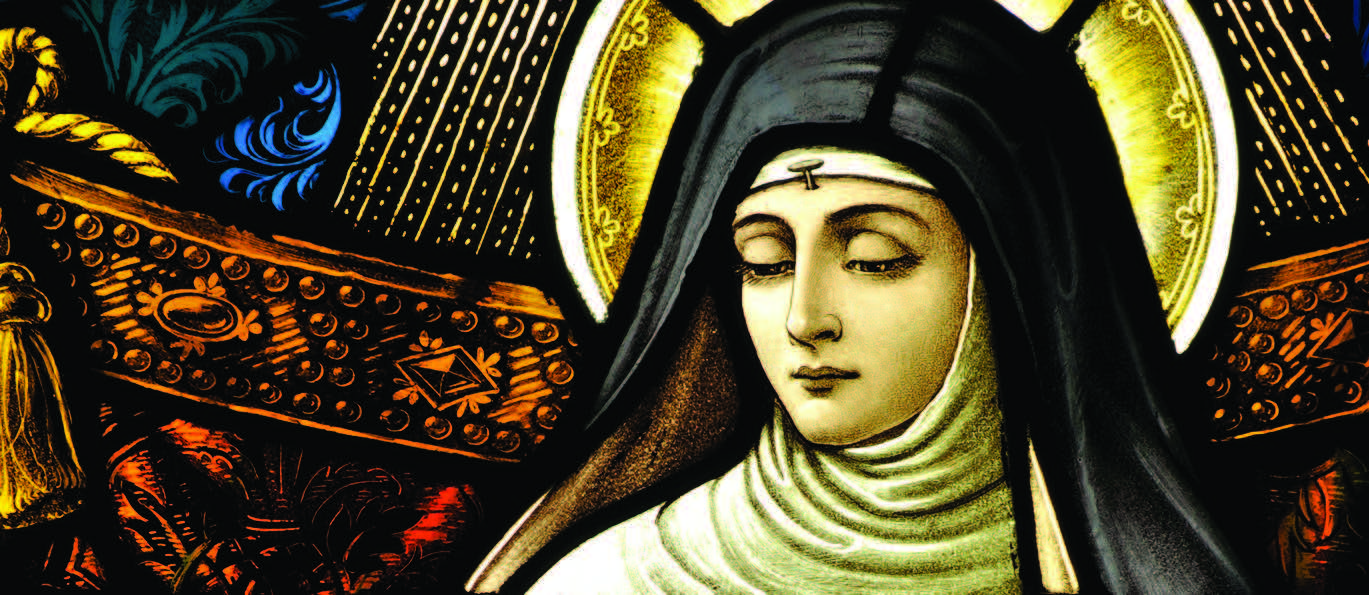Having grown up in the shadow of the saints, I was smitten at a young age. As a youth, stories about the saints had my imagination soaring. I envisioned St. Francis of Assisi roaming the hills of Tuscany while serenading Lady Poverty as St. Therese showered the Earth with an endless supply of roses from heaven. The life of my patroness, St. Barbara, imprisoned by her father in the family tower, bore a striking resemblance to Rapunzel of fairytale fame.
These and other stories captured my imagination and had romanticized sanctity for me, not so differently than the way superheroes and fairy princesses capture the hearts and minds of young people today. And yet, there is a huge difference. The heroes and heroines enshrined in sainthood were real people while the imaginary heroes of today are just that – a figment of the imagination.
Eventually, children grow beyond believing in superheroes, while childhood fantasies of saints are replaced by biographical accounts that offer a more realistic perspective. Saints become models to emulate while superheroes meet their demise somewhere along the road to maturity.
As baptized Christians, we are all saints in the making, called to imitate the love for God and the virtues that the saints exemplified. However, we are not called to be reproductions of them. God does not make carbon copies, nor does he need another St. Francis, St. Therese or St. Barbara — at least not like the ones who lived centuries ago. Each generation is called to holiness within the context of its time and culture.
The feast of All Saints, which the Church celebrates on Nov. 1, followed by the feast of All Souls on Nov. 2 serve as reminders that our life on Earth is but a preparation for the life to come. How we live today matters because we never know when our earthly life will end.
However, if we love God with our whole mind, heart and strength, and keep his commandments, we have nothing to fear, nor will we be lulled into a false sense of complacency. With one eye on today and another eternity, a good maxim to live by is: “I will not put off until tomorrow what I can do today because I may not pass this way again.” It’s an approach that is motivated not by fear, but by wisdom. When we consider that every day, we have an opportunity to either further the coming of the kingdom of God or delay it, the power that God has given to human beings is pretty awesome.
Distinguished Belgian theologian Gerhard Lohfink wrote that God does not reveal his kingdom in bits and pieces but all at once. However, it’s the blindness of humankind that is unable to recognize the kingdom of God in its entirety in the present moment. This is the reason Jesus taught us to pray, “Thy kingdom come; thy will be done on Earth as it is in heaven.”
The saints whose lives we celebrate, as well as those known only to God and perhaps the people they lived among while on Earth, were able to recognize the kingdom of God present in their lives in a more complete way. Their clear-eyed vision gave them the strength to enter by the narrow gate, and as a result, they are now in heaven. Those who remain on the way even after death are the souls in purgatory, awaiting the day when they will behold God in all his glory and entirety.
As each person travels the road to eternity, the road to God will vary in the way that it is lived out. Our baptism places us the road to God; we can remain steadfast, or we can get off anytime; the choice is ours. Fortunately for us, we have a God whose mercy is without end. He never stops inviting us to return to the straight and narrow path that leads to salvation. Knowing that our time here is limited should prompt us all to remain faithful lest we die while we have strayed while pursuing false gods of our own making.
St. Teresa of Avila wrote on her famous bookmark, “Let nothing disturb you, let nothing frighten you. All things are passing. God never changes. Patience obtains all things. Nothing is wanting to those who possess God. God alone suffices.” May her wisdom be our guide regardless of our age or culture.

